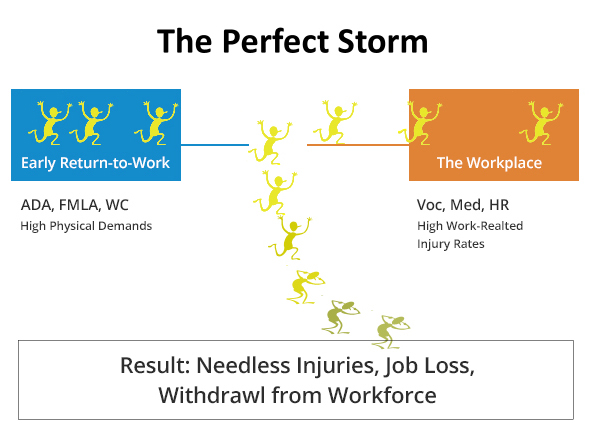The Risks of Returning to Work Early Following an Injury
The Risks of Returning to Work Early Following an Injury
The potential effects of early return-to-work without appropriate physical restrictions can be devastating.
All too often, I hear stories of individuals being released back to work following an injury or illness before they are ready. Frequently, these people are victims of systematic pressure, i.e., someone is trying to control claims costs at the expense of their health.
Many times, the individual is released prematurely or inappropriately due to a doctor’s unfamiliarity with the return-to-work form or the physician just doesn’t have the time or resources to test function and fill the form out correctly.
This potentially puts the individual in harm’s way – especially if the appropriate physical work restrictions aren’t in place. Not all employers offer “modified or light duty” assignments that allow employees to come back to work while they heal and gradually progress back to full duty.
Without the appropriate work restrictions in place when an employee returns to work, they may be required to perform work tasks that put them at risk of re-injury or re-aggravation of their condition.
No one wins in this scenario. The employer is at risk of losing their valuable employee and the individual is at risk of developing a chronic condition.
Workplace interventions for preventing needless work disability start with an accurate understanding of what an individual’s true functional abilities are, and one of the most reliable ways to determine a person’s true functional capacity for return to work is through objective functional testing.

Related Posts




